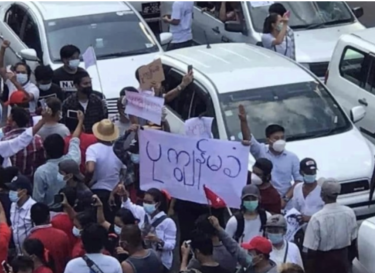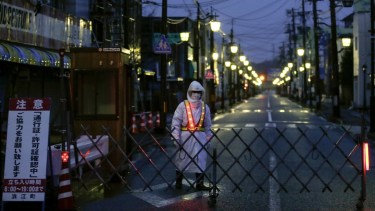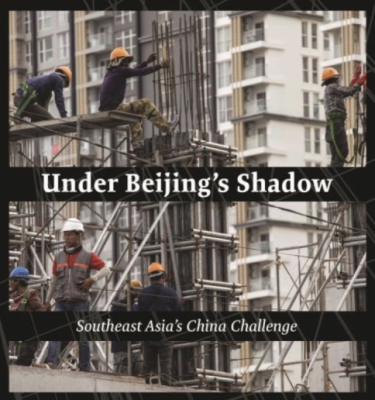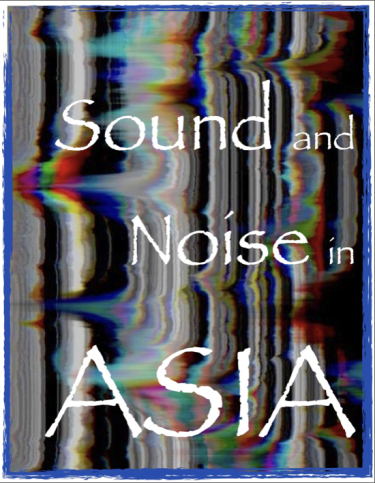
The Center for Asian Studies is launching CAS in the Spotlight to highlight news about what we have been working on and upcoming events. Look for a new volume two or three times each semester!

Coping with the Coup
While Poking Some Fun
|
by Chu May Paing February 1, 2021 (or 1221, as the day is now being called) marked a new era of political involvement in Myanmar. During the night, the Myanmar military (Tatmadaw) decided to disregard the November, 2019 election results, which had given the National League for Democracy, Aung San Suu Kyi’s party, a powerful majority. The Tatmadaw seized power while arresting her and many activists, and calling a national state of emergency. Everyone I know in Myanmar, including my immediate family, is participating in the Civil Disobedience Movement (CDM). Civil service employees have refused to go to work as a peaceful way of showing their disagreement with the coup. Citizens in Yangon and other cities have marched and protested, and at 8pm each night, they call for the generals to step down by honking car horns and banging pots and pans. At the moment, the CDM has spread beyond the large cities across the country and has become the most salient formal resistance against the coup. A palpable sense of worry, frustration, and anger looms over the public. On February 9, the police committed the first killing of a civilian; Ma Myat Thwe Thwe Khine, a young university student, was shot in the head and killed during a protest in Naypyidaw. In the following days, the military has murdered, tortured, and arrested more civilians. On February 11, my friends informed me about a newly drafted Cybersecurity bill that criminalizes “sexually explicit speech” (as in the current protest slogans against the coup) and using pseudonyms on Facebook among other violations of human rights and freedom of expression; the Tatmadaw now shuts down the Internet every night from 1 AM to 9 AM. On February 13, rumors began circulating about prisoners being released from jail to provoke civil unrest in Yangon and increase fear. In the days that followed, there were suspicious arson attacks in Yangon. In contrast to the formal resistance staged by the CDM, an informal mode of resistance that plays with puns, images, and memes has also emerged as a public strategy for poking fun at figures of authority like the Tatmadaw, if not authoritarianism itself. Born and raised in Yangon, Myanmar, Chu May Paing is a PhD student in cultural anthropology at University of Colorado Boulder. Her research interests include gender, political aesthetics, post-coloniality, and modernity in urban Myanmar. |

Upcoming Event:
A Decade of Fukushima: Socio-Technical Perspectives on Surviving the Nuclear Age in Japan
March 2021 marks ten years since the Fukushima nuclear disaster. Long an ambassador for nuclear disarmament (being the only country in the world to have experienced wartime nuclear bombing), Japan now sees itself questioning the peacetime production of nuclear energy as well. This workshop will explore Japan’s ongoing efforts to survive in, and attempts to move beyond, the nuclear era, by focusing on post-Fukushima social movements and cultural practices from socio-technical perspectives. Professor Hirokazu Miyazaki (Northwestern University) will offer a keynote address, followed the next day by presentations and discussion by Sulfikar Amir (Nanyang Technological University), Hiroko Kumaki (Dartmouth College), Noriko Manabe (Temple University), and Ryo Morimoto (Princeton University), with responses and discussion by CU professors Donna Goldstein, Darren Byler, Tim Oakes, Kate Goldfarb and Miriam Kingsberg Kadia. Both events will be open to the public via prior registration.
Keynote Address Registration
Thursday, March 18, 5pm - 6:30pm MDT
Paper Presentations and Discussion Registration
Friday, March 19, 3pm - 6pm MDT
China Made Post Doctoral Fellow Darren Byler’s Research Featured on Democracy Now!
Since early 2020 Darren Byler has analyzed a 52 gigabyte internal police dataset obtained by the news journal The Intercept as part of his work with CAS’s China Made project and his position as a China Fellow at the Washington D.C.-based Wilson International Center for Scholars. The dataset he examined contains tens of thousands of police files which describe in fine-grained detail the goals and capacities of a mass internment system which targets Uyghurs and other minorities in Northwest China.

Murray Hiebert talks about his new book, Under Beijing’s Shadow: Southeast Asia’s China Challenge
On January 27th, Murray Hiebert discussed with CAS Director Tim Oakes his new book, Under Beijing’s Shadow: Southeast Asia’s China Challenge. Hiebert is a senior associate at the Southeast Asia Program at the Center for Strategic and International Studies (CSIS). He joined us remotely from his home in Washington, DC. His talk was co-sponsored by the China Made Project (https://chinamadeproject.net/) which explores China’s outbound infrastructure investment with a regional focus on Southeast Asia. China’s growing assertiveness in foreign investment – particularly in the fields of infrastructure development along with natural resource extraction – has certainly garnered much of the world’s attention. Much of that attention has focused on China’s signature initiative, the Belt & Road – and what this “project of the century” entails for the global political and economic order. China Made takes a grounded view of China’s development projects, particularly its infrastructure projects in Southeast Asia. How are these projects embedded within Southeast Asian societies? What do the on-the-ground effects of these projects tell us about a newly ‘global China?’

A Successful Sound and Noise in Asia Symposium
On November 5 and 6, CAS kicked off a yearlong lecture series featuring approaches from sound studies with the “Sound and Noise in Asia” symposium. Originating as an organized panel for the Society of Cinema and Media Studies annual conference in spring 2020, the four papers that constituted the core of the symposium revolved around sound/noise practices and aesthetics from East Asian broadcast media such as radio and television. The central idea was to think about the dynamic between institutional broadcast practices, including sound regulation, and the element of chaos in noise that surrounded them from their beginnings in the Cold War period. Cultural policy in Japan, Korea, Taiwan and China was fairly strong-handed and centralized during this time, but sound itself is difficult to keep within strict boundaries, tending to leak out where it is unwanted and becoming noisy—both literally and metaphorically.
CAS Holds Event Seeing/Unseeing the ‘Chinese’: Visuality, Race, and Contemporary Art in Indonesia
On Thursday, February 11, 2021, Dr. Karen Strassler gave a talk entitled, “Seeing/Unseeing the ‘Chinese’: Visuality, Race, and Contemporary Art in Indonesia.” Dr. Strassler is Professor of Anthropology at CUNY’s Queen’s College and the Graduate Center. Her research interests include photography, visual and media culture, violence and historical memory. She is the author of two books, including Refracted Visions: Popular Photography and National Modernity in Java (Duke UP, 2010), a study of the role of everyday photography in the making of Indonesian national identity; and Demanding Images: Democracy, Mediation, and the Image-Event in Indonesia (Duke UP, 2020), which explores the political work of images in post-authoritarian Indonesia.
CAS Affiliated Faculty Atreyee Bhattacharya Participates in Theater Festival About Science
How would past societies cope with climate disasters had they known about climate sciences?
Climate research conducted in India as a play ‘Mausim’ by Kenya Fashaw
-- By Atreyee Bhattacharya
It was a strange (and singular) seeing my climate research in drought-prone swaths of peninsular India, which involved fieldwork, mining colonial era texts and laboratory analysis, getting transformed over the course of the Fall semester of 2020 into fiction - a virtual short play titled ‘Mausim’ by playwright and poet Kenya Fashaw - as part of a collaborative project between Boulder Ensemble Theater Company (BETC) and CU’s the Nature, Environment, Science & Technology (NEST) Studio for the Arts. The play (along with three others) is now streaming. Information here
